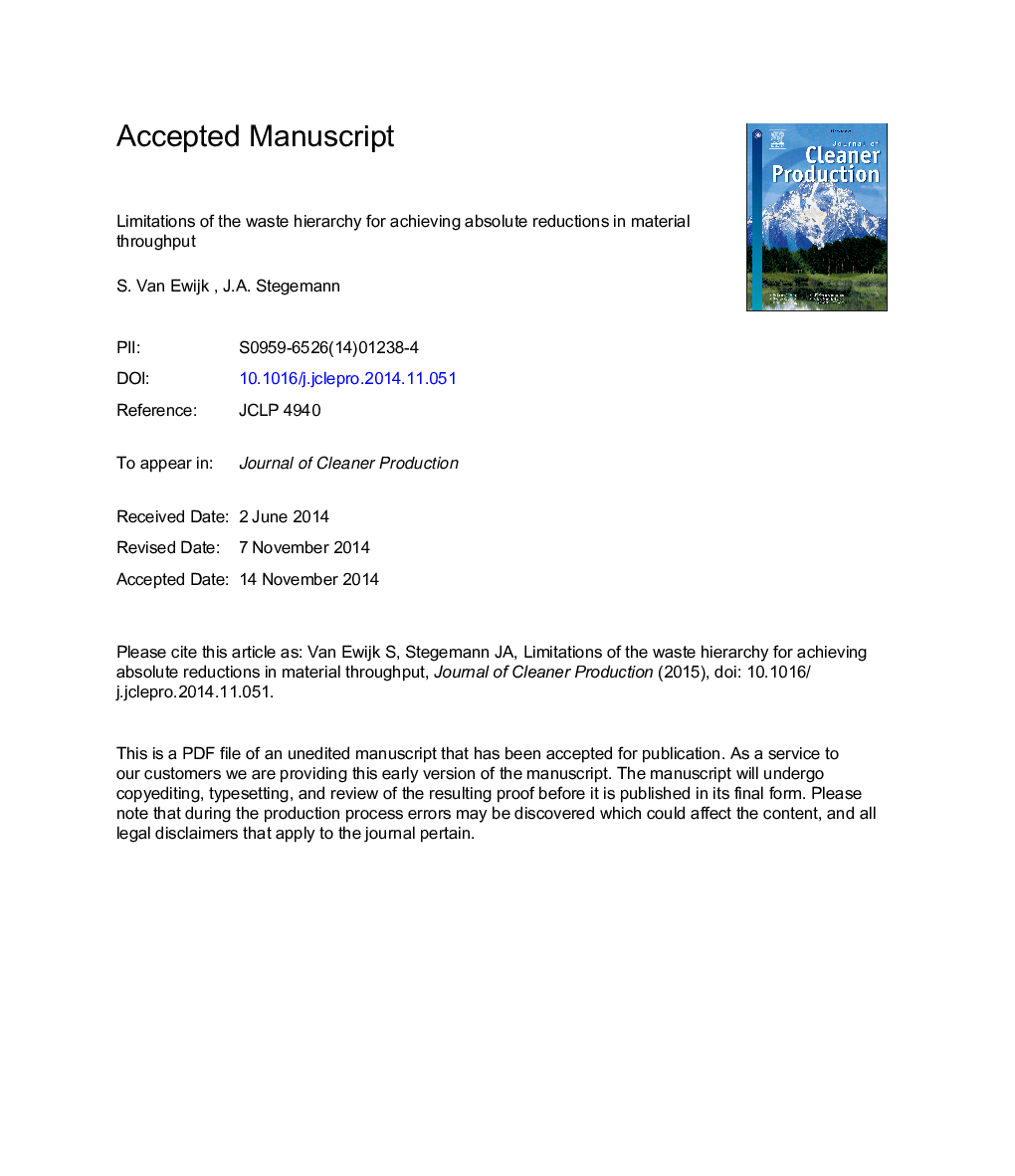| Article ID | Journal | Published Year | Pages | File Type |
|---|---|---|---|---|
| 8101485 | Journal of Cleaner Production | 2016 | 18 Pages |
Abstract
Dematerialization can serve as a measurable and straightforward strategy for sustainability and requires changes in management of material inputs and waste outputs of the economy. Currently, waste management is strongly inspired by the waste hierarchy, an influential philosophy in waste and resource management that prioritizes practices ranging from waste prevention to landfill. Despite the inclusion and prioritization of prevention in the hierarchy, the positive contribution of the application of the waste hierarchy to dematerializing the economy is not inevitable, nor has it been conclusively studied. In this paper, the waste hierarchy is analyzed on a conceptual level by studying its original aims, its potential to fulfill those aims, and its actual policy implementation. Issues with the hierarchy include limited specification and implementation of prevention, a lack of guidance for choosing amongst the levels of the hierarchy and the absence of a distinction between open-loop and closed-loop recycling. Also, the hierarchy only communicates relative priorities and therefore does not support decisions that affect other sectors as well as waste management. The article concludes that the waste hierarchy in its current form is an insufficient foundation for waste and resource policy to achieve absolute reductions in material throughput. Suggested improvements are the adoption of a value-based conception of waste and related collection practices, more stringent and targeted policies on least desirable options like landfill, the specification of waste management targets based on dematerialization ambitions, and the use of the waste hierarchy within a resource productivity-oriented framework.
Related Topics
Physical Sciences and Engineering
Energy
Renewable Energy, Sustainability and the Environment
Authors
S. Van Ewijk, J.A. Stegemann,
